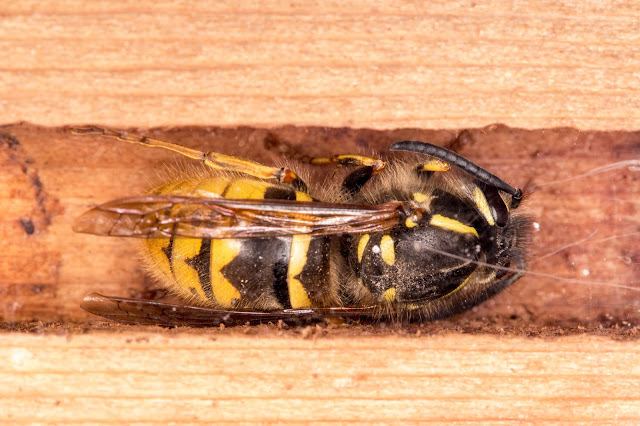It has been a good month for seeing birds in my garden, mostly under the feeders just outside the kitchen window. The most exciting sighting was a male brambling. It was only here for a day but I saw it several times throughout the day. By now I expect it is back in Scandinavia or in northern Scotland waiting for a favourable wind for the crossing.
The siskins turned up at the end of March and have been here every day since. I see at least two females and at least two males but never more than four together. There may be only four.
Blackcaps arrive from Africa every April and they turned up on time again this year. There have been two singing males in the copse. Twice I caught a glimpse of one opposite the front door when I didn't have a camera ready. The good news is that once when I was waiting with a camera a female turned up, attracted by the song.
I think blackcaps must nest in the garden every year but once the singing stops in May I don't see any sign of them until the youngsters emerge in the summer. I have never seen an overwintering blackcap but I hear tell of them not far away. Maybe one winter mine will stay.
Another April visitor every year, but from much closer by, is a male reed bunting. This one probably came from the nature reserve just north of here. I expect there isn't much to eat there in April. Interestingly I have never seen a female here.
Tree sparrows must be well advanced with their nest building. They can have two or three broods in a season so they need to start early.
I noticed a couple of odd-looking stock doves last month. This one has scorched-looking primaries so I sent a photo to the BTO and their expert commented that it looks like a genetic or growth problem, which doesn't add much. The bird seems well.
This one probably has avian pox virus. It mostly affects tits, sparrows, dunnocks and starlings. I haven't seen any other affected birds so it probably isn't anything to be concerned about at this stage.
The sparrowhawk still visits regularly but I rarely see it sitting now. One one occasion it perched on top of the finial on my gazebo after an unsuccessful attack for just long enough for me to get a distant photo.
The dry weather has been tough for birds that rely on earthworms and other soil invertebrates. Very early one morning I saw this oystercatcher on the golf course opposite the kitchen window, taking advantage of the fact that the greens have been watered. The oystercatchers arrived to take up their nest sites on the roof of a building across the road in February. I hope to see one foraging in my garden again in the summer.
The easing of lockdown has meant we are able to travel farther but the cold weather hasn't encouraged expeditions, mainly because the spring is delayed. In Northamptonshire at the beginning of the month I saw hairy-footed flower bees (Anthophora plumipes), such as this male,
and tawny mining bees (Andrena fulva), such as this female.
At home I saw my first red mason bees (Osmia bicornis). This male is investigating a hole in the dead sycamore.
This female is sheltering from the cold in the bee house but hasn't started building a nest yet - not here, anyway. She is adopting a defensive posture, with her middle leg raised, because I have opened the side.
Also in the bee house on the same day was a sleeping queen common wasp (Vespula vulgaris).
At Belsay Hall I saw red-tailed bumblebees (Bombus lapidarius),
whit-tailed bumblebee (Bombus lucorum),
buff-tailed bumblebees (Bombus terrestris),
and common carder bees (Bombus pascuorum).
Also at Belsay I saw blue tits and great tits taking nectar from a very fragrant rhododendron. I have seen blue tits with pollen on their faces before but have never witnessed this behaviour.
This April may not have been the cruellest month but it was cold and dry. There was a little bit of rain in the last four days but overall rainfall was very low. And it was the frostiest April for 60 years.























Seems to me we've skipped spring entirely and gone on to October as it's felt the last two days!
ReplyDelete